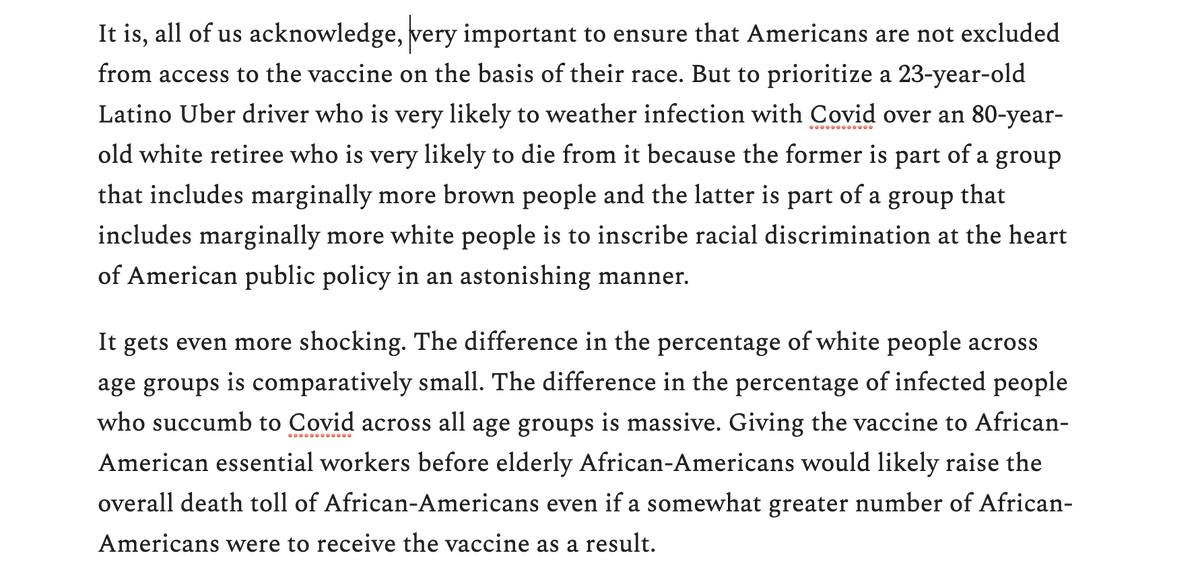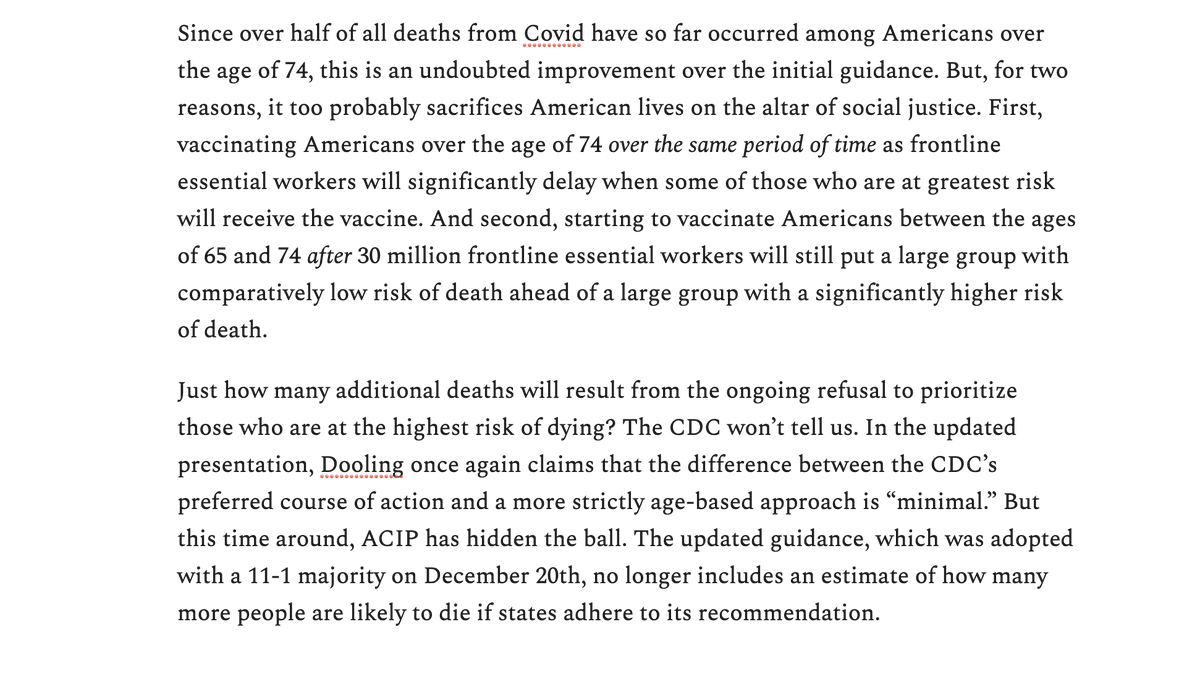
I support (the option of) statehood for Puerto Rico on an ur-American principle: "no taxation without representation."
But it's a little weird that so many people assume that a) Puerto Ricans would definitely vote for statehood and b) their Senators would always vote with Dems.
But it's a little weird that so many people assume that a) Puerto Ricans would definitely vote for statehood and b) their Senators would always vote with Dems.
Puerto Rico has a deeply entrenched partisan political divide that does not map neatly onto the American one.
And its Senators would, primarily, have an interest in getting the best treatment for PR.
It really isn't as simple as "they're brown so they'll just be Democrats."
And its Senators would, primarily, have an interest in getting the best treatment for PR.
It really isn't as simple as "they're brown so they'll just be Democrats."
Of course, all of this is even more reason to offer PR a vote on statehood.
This shouldn't be some partisan maneuver to "rebalance" the Senate. It should be pursued because we owe Puerto Ricans a chance to decide on their own future, whatever the consequences for US politics.
This shouldn't be some partisan maneuver to "rebalance" the Senate. It should be pursued because we owe Puerto Ricans a chance to decide on their own future, whatever the consequences for US politics.
(Yes, PR narrowly voted for statehood in non-binding, low turnout referenda. Statehood should be preceded by a binding referendum.
And yes, PRs don't pay federal income tax. But their lacking representation is unjust for reasons very similar to the historic slogan.)
And yes, PRs don't pay federal income tax. But their lacking representation is unjust for reasons very similar to the historic slogan.)
• • •
Missing some Tweet in this thread? You can try to
force a refresh




